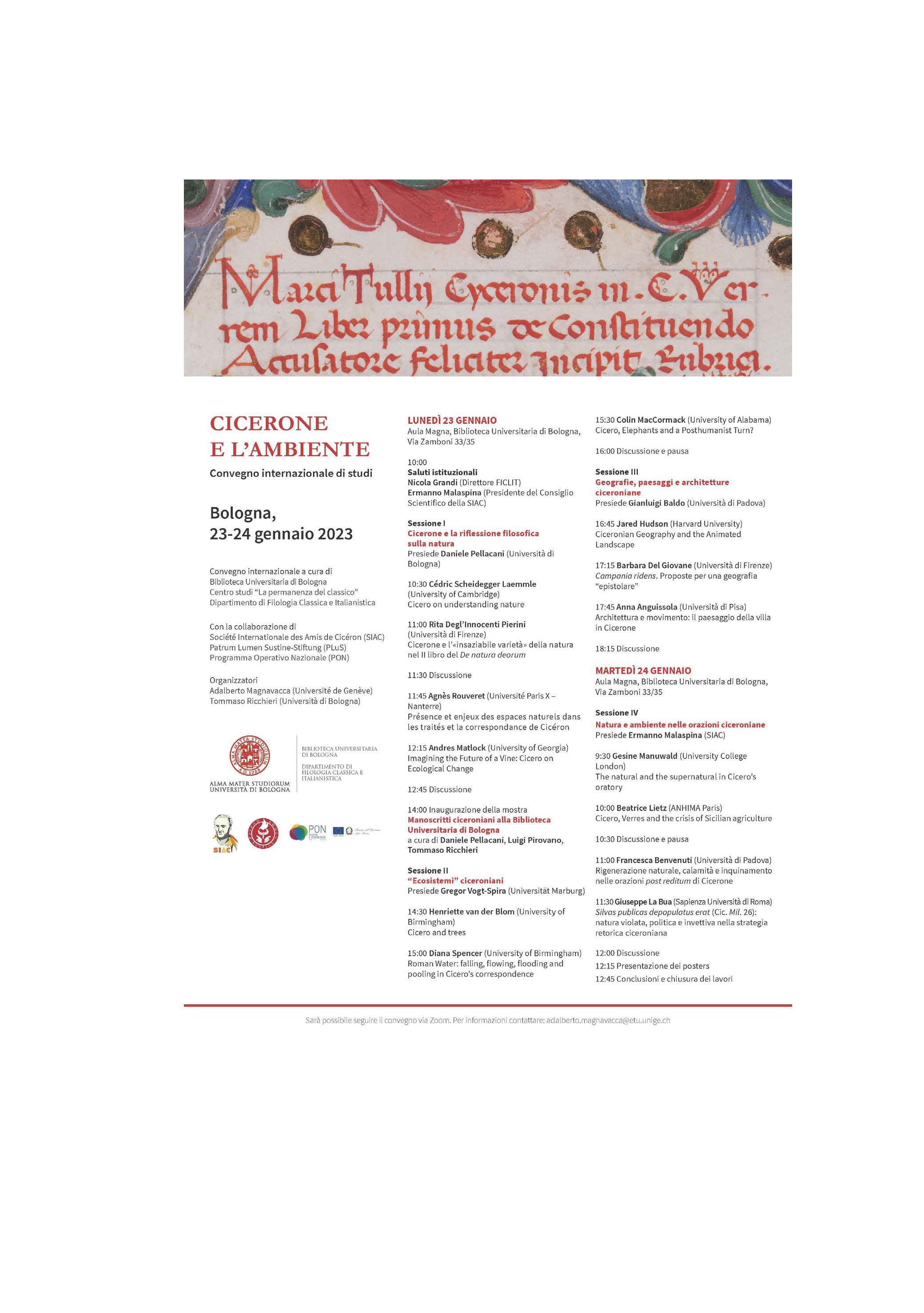Nature in Verse in Cicero the Philosopher
DOI:
https://doi.org/10.13135/2532-5353/9345Abstract
This contribution studies poetic citations in Cicero’s philosophical corpus, specifically those in which elements related to the natural environment appear. The analysis focuses on environmental aspects present in select quotations related to the theme of pain, where nature reflects the condition of physical and psychic suffering of the heroes, Philoctetes and Prometheus. The argument takes in verses from Accius’s Philoctetes, quoted in De finibus and Tusculanae disputationes, and Cicero’s translation from Aeschylus’s Prometheus Unbound (fr. 33 Bl.2), quoted in Tusc. 2, 23-25. The environment emerges as a hostile space that embraces the heroes’ cry of pain. At the same time, Cicero conjures a desolate and lonely landscape in his translation of a passage from Homer’s Iliad (6, 201-202 in Tusc. 3, 63; fr. 24 Bl.2), as the setting in which Bellerophon seeks consolation to his pain, condemning himself to silence and voluntary exile. Cicero does the same, after the death of his daughter Tullia (Att. 12, 15), in a literary gesture that brings together philosophy and autobiography through the theme of pain and loneliness.
Downloads
Downloads
Published
How to Cite
Issue
Section
License
Authors who publish with this journal agree to the following terms:
- Authors retain copyright and grant the journal right of first publication with the work simultaneously licensed under a Creative Commons Attribution License that allows others to share the work with an acknowledgement of the work's authorship and initial publication in this journal.
- Authors are able to enter into separate, additional contractual arrangements for the non-exclusive distribution of the journal's published version of the work (e.g., post it to an institutional repository or publish it in a book), with an acknowledgement of its initial publication in this journal.


 Ciceroniana On Line is recognised by ANVUR (the National Agency for the Evaluation of the University System and Research) as a CLASS A journal for the Sciences of Antiquity, Philology, Literature and History of Art (
Ciceroniana On Line is recognised by ANVUR (the National Agency for the Evaluation of the University System and Research) as a CLASS A journal for the Sciences of Antiquity, Philology, Literature and History of Art ( The journal is included in DOAJ. The DOAJ listing of the journals is available at
The journal is included in DOAJ. The DOAJ listing of the journals is available at  The journal is indexed in
The journal is indexed in  The journal has been included in ERIH PLUS. The ERIH PLUS listing of the journals is available at
The journal has been included in ERIH PLUS. The ERIH PLUS listing of the journals is available at 

